Official ceremonial flag (sometimes called the “Ambassador Flag” as it is the preferred choice of Ambassadors)
It’s already been more than a year since we first heard of a new virus, one that was soon to conquer the world and change our lives, perhaps forever. A pandemic like nothing anyone had lived through before, changed the way we interact with each other, slowed down the pace of our hectic lives and proved to us that we, human beings are such small, powerless and fragile creatures.
What started in the Chinese province of Wuhan in December 2019, originally believed to have come from a wholesale animal market and transmitted from bats, spread with astonishing speed throughout the globe and affected, physically or emotionally, every man and woman on this planet.
Day by day the Coronavirus spread and came closer and closer to us, no matter where we were on Earth. It seemed as if there was no escape whatsoever… Asia, then Europe and America, Africa (although curiously slightly less affected), Australia and New Zealand (perhaps the only instance of exemplary crisis management and of keeping the virus under relative control)… we all learned what COVID is and how perfidious it can be. We heard of numerous cases of peoples’ health deteriorating by the day, their lungs and sometimes other organs badly affected and needing intensive care and oxygen to breathe. Some bear the scars and other after-effects on their health long after they had been officially declared cured. Others lived through the pandemic with only mild symptoms such as the loss of smell and taste, and yet others were totally asymptomatic. This is in fact considered the most dangerous condition, as more often than not, they aren’t even aware of carrying the virus and thus, spreading and transmitting it even further.
More than one year into the pandemic, the economic recession is showing its teeth, and the uncompromising reports and statistics which worsen daily, are quite frightening: close to one hundred million people have been infected worldwide, more than two million have died, millions of jobs have been lost, countless businesses have gone bankrupt…billions of lives have been affected.
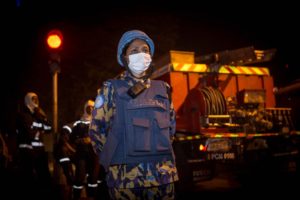
These tragic statistics, which change rapidly from day to day, and of which no country would like to be a part, show us that at the moment, the most badly affected countries in the world are the USA, India and Brazil. But Europe has also seen its share of calamities and has witnessed terrible scenes that many never imagined they would go through since the end of World War II. In fact, the first case of COVID in Europe was officially reported in France, as early as January 2020; however nobody expected what was to follow. The aggressiveness of this Coronavirus and the high speed with which it spread throughout the continent took everybody by surprise and unfortunately, caught most authorities totally off-guard. Many complained later that the protective measures were far too slow and inadequate in view of the gravity of the situation in most European countries. One by one, Italy, Spain, the UK and the rest of Europe lived through tragic days that were never supposed to happen in times of peace.

Hospital emergency units were full of infected patients, the seriously ill were kept between life and death by exhausted doctors and nurses, morgues were full of coffins, cemeteries were overcrowded… an awful picture that we would wish to forget as soon as possible. Even for those not infected or ill, it was plain to see that the times were strange. I will never forget the staggering images of empty streets, ghost cities, famous landmarks all over the world completely empty with no eager tourists milling about, pointing their cameras. Instead, we witnessed emotional moments, people singing together from their balconies, trying to cheer up one another and bring hope for the future, and rounds of evening applause and support for the effort of tireless and dedicated medical staff fighting to keep sick people alive.
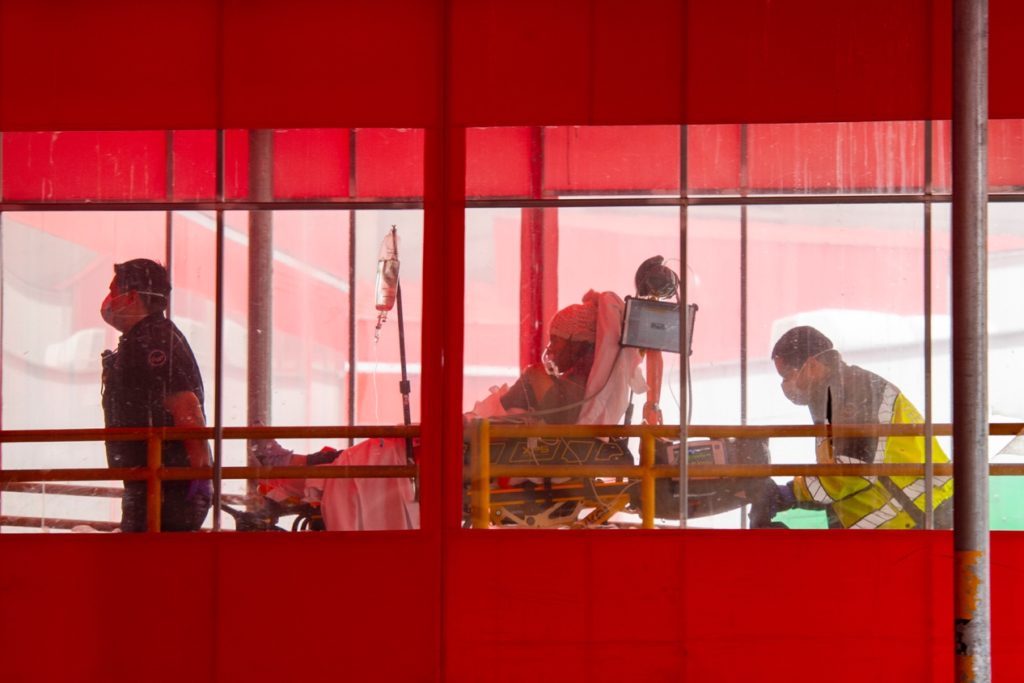
Progressively, harder lockdowns were imposed all over Europe and strict curfew hours or even mandatory stay-at-home orders implemented in some countries. Inevitably, jokes began to emerge. Suddenly, people with dogs were envied and then, dogs began to get tired of so many walks around the block; everyone was ‘jogging’ around the neighborhood… ‘Stay home, to save lives!’ became the universal exhortation. We do indeed live in abnormal times. Recently I even had to attend a funeral – online – thousands of miles away!
However, the manner in which each country responded to the situation was sometimes questionable. Some governments prioritized industries and totally neglected culture which is the most badly affected field of activity. Others chose to close schools for months in a row, forgetting that the only real way to progress in a society is through education. It is too early to say who was right or wrong; only time will tell.
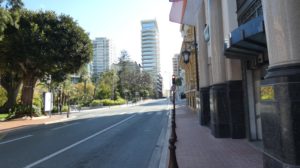
One year into the pandemic, and sadly the situation hasn’t changed much. We are still experiencing emotionally wracking lockdowns, still uncertain about how long it will last and how long it will be before our lives go back to normal… if they ever do, that is. New waves of the pandemic have arrived, new and more aggressive variants of the virus have recently been discovered. But although a couple of seemingly effective vaccines have been produced and inoculation has already begun at full speed in many countries, there is still no real hope that the disease is on a downward trend and that this year will mean a return to the simple normality that we all long for. In any case, children under 16 years of age cannot be vaccinated, immunized people could still spread the virus and we don’t know the duration of the vaccine’s effectiveness.
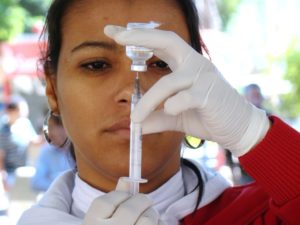
There are so many question marks in a society that is slowly losing its patience and endurance. The lessons of past pandemics at the beginning of the 20th century, such as the dreaded Spanish flu have taught us that these diseases do not go away so easily; it takes many years during which millions of people will unfortunately fall victim to them.
This pandemic has forced most people to rethink their lives, to learn to live with less, to interact less with others, to work remotely from home and to try professional reconversions that in some cases, seemed to be long overdue.
Diplomats were no exception. We were affected like most other people. It’s true that no jobs were lost as a consequence, but working from home and severely limiting human interactions brought a radical change.
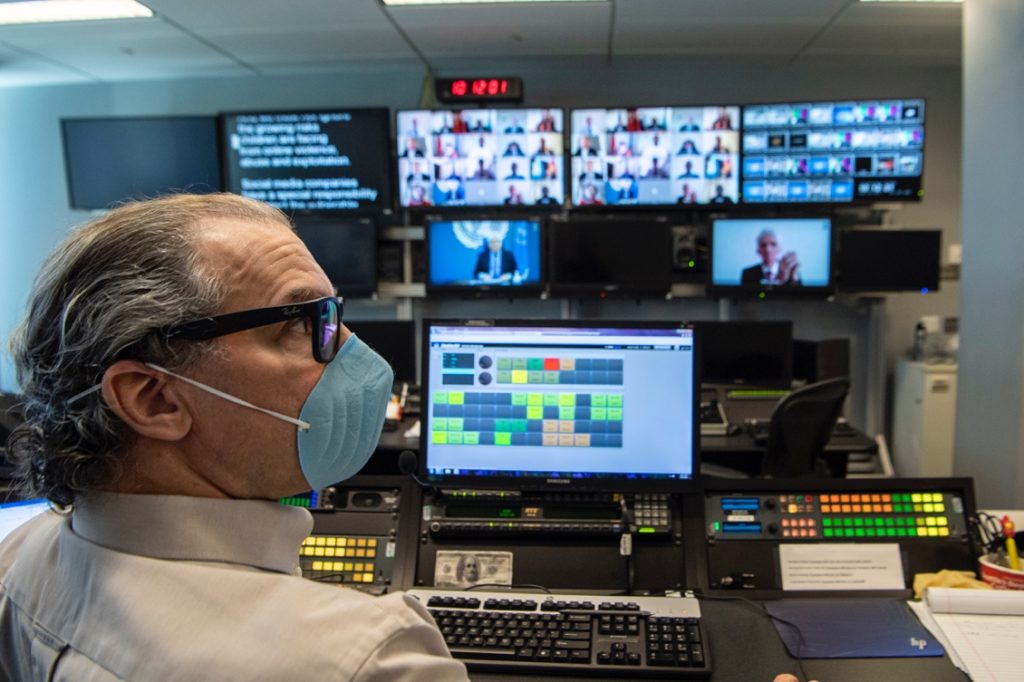
After all, diplomacy is by definition, a very socially active kind of activity. People in this field are used to interacting daily with other diplomats and officials, to participating in meetings, to mingling, to discussing and exchanging information, sometimes of a sensitive nature that can only be done face to face. So, by restricting these daily events, the job itself became more difficult to accomplish. Working from home for a while meant acquiring new digital competences and developing a totally new set of skills. It also meant no fully-secure lines of communication and no sensitive information exchanged. Consequently, the volume of work in this field sometimes diminished considerably. Even at the highest levels, most EU meetings were held exclusively online. Health ministers from all European nations met in front of a screen and decided the course of actions to be taken. Locally, the traditional monthly gatherings between all European states’ representatives were cancelled or went on virtually; people tried to find new ways to carry on and suddenly all our lives and actions took place in virtual space.
But, on the other hand, the new realities called for different measures and actions. Millions of people were stranded in different parts of the globe, without any real possibility of returning to their countries of residence due to massive flight cancellations and restrictions on entry or transit imposed by many states. This led to an exponential increase in the consular activities of most embassies around the world.
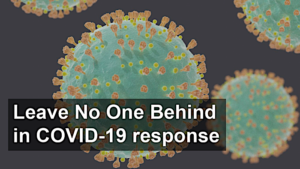
Banners with the slogan ‘Leave no one behind’ were to be seen everywhere. And so, the pressure on Foreign Service officers of all nations grew rapidly. Diplomats have long been at the forefront, providing the necessary assistance to those in need. Hundreds of special emergency flights have been arranged around the world for passengers stranded on the other side of the globe and desperately needing to return home. Road transport convoys have been organized and in many instances, it was the diplomats who negotiated the reopening of borders to facilitate the return to their countries of origin of those who worked abroad and who, in many cases, were left without a job and without the financial means of living in the host countries. Desperate people in desperate situations required rapid and decisive actions. The phone kept ringing around the clock for weeks on end. All these actions probably remain less visible to many, but they certainly made a huge difference and this needs to be emphasized and acknowledged.
For diplomats and their families, this whole situation only added to the stress and the emotional toll that a nomadic life, constantly on the move, usually takes. As a diplomat, you know that your life in a certain country is temporary. You learn to live with that feeling of uncertainty and unpredictability, no matter how unpleasant that may be. You know better than not to become too attached to people and places, not to become too comfortable and not to put down roots in a place that you will call home only for a few years.
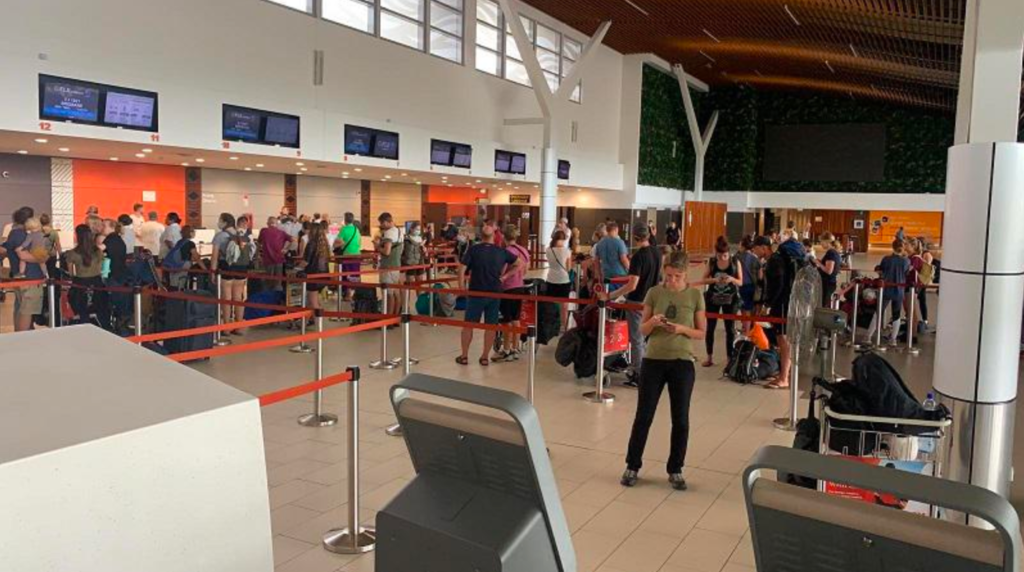
But 2020 brought additional complications and greater logistical difficulties to the usual annual rotation process in the diplomatic world. Suddenly, there were many question marks. How do we move? Is it safe to come into contact with all the usual and essential people in such a complex process? How do we cope with the different measures imposed in different countries? Moving within the EU seemed slightly less stressful since most of the countries had more or less, established coordinated rules. But diplomatic rotations sometimes mean relocation and a move to the other side of the globe. This is no simple task in times of pandemic. How do you make travel plans when flights are delayed from one day to the next or even worse, are cancelled for months on end with little or no additional travel routes to choose from? How do you find adequate accommodation and proper schooling for your children? How do you get in contact with local authorities to fill out the necessary papers required in any such relocation? All these questions were left unanswered. Therefore, many countries decided to postpone upcoming missions abroad for their Foreign Service officers and to prolong for one additional year their stay in their present countries of residence, in order to slightly ease their burden. I honestly think that this was a wise decision that showed compassion and understanding for the plight of the diplomats.
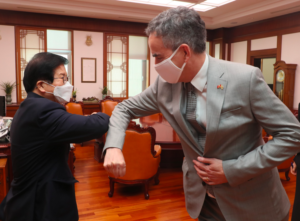
Travel was restricted in any case, which also meant practically no vacation for most diplomatic staff last year. Who wants to travel when you have to quarantine for two weeks upon your return, anyway? Not to mention the constant stress of not getting infected while travelling, the additional holiday registrations and health insurance and with half your baggage packed with disinfectants and protective face masks.
For the diplomatic corps, holidays are traditionally long (about six weeks of paid holidays per year) and are usually a chance to travel home, visit the extended family and old friends that we have missed while abroad. Not many were offered such opportunities in 2020, and 2021 doesn’t look too promising either. We are now in the middle of the pandemic. We look with interest but also with fear at what is happening in our home countries, how the situation is evolving and affecting our parents and relatives. But at the same time, we live in another country where the regulations and the situation are often very different. We must conform to the rules of our host countries, hope that things will soon improve and that life will return to some sort of normality.
Regarding diplomatic activities, nowadays nothing is the same as before. The daily schedule of a career diplomat several months ago illustrates the difference. Other than going to the office daily, the work agenda has changed considerably…for the worse. It is sometimes impossible not to feel that you have lost your usefulness, that your work is no longer as important and relevant as it was previously. Most diplomatic events are now cancelled, most conferences postponed and the very few still taking place have moved to online platforms such as Zoom, Skype or others.
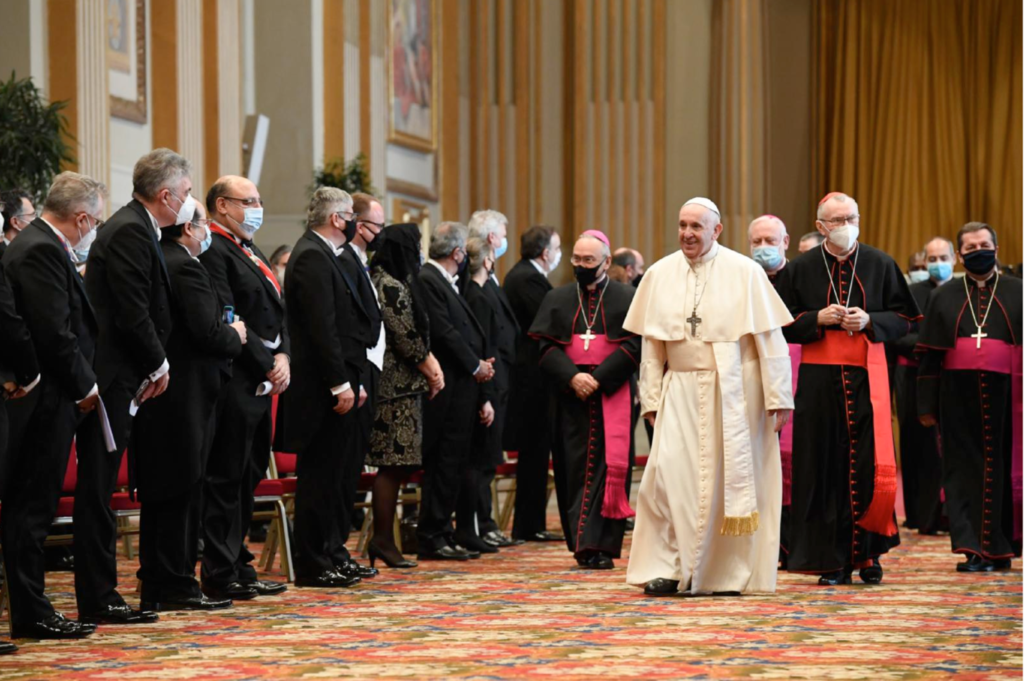
There are no longer evening celebrations or gatherings. How can you still perform your duties and do the work you were trained for, how do you meet new people from other embassies, how do you make new contacts, exchange information, form alliances, when the most important diplomatic tool – social interaction – is no longer available? Suddenly, most of the important social events in every diplomat’s life have disappeared. There are no more grand receptions on the occasion of the National Day of each country, considered the ‘high point of the season’ and an excellent opportunity for making new acquaintances and socializing with other foreign diplomats. No more exciting and competitive diplomatic sports competitions, such as the Diplomatic Football Cup, Diplomatic Canoe Race or the Diplomatic Tennis Tournament, to name just a few of which I am aware and have participated in. These events that were so popular in the past, included diplomats from many countries who got together and formed close bonds over a relaxed weekend of sports and fun activities, along with their families.
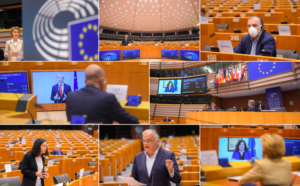
The pandemic and the strict rules of social distancing also greatly affected spouses and partners of career diplomats who live the same nomadic life but usually without much of the social interaction and activities that a normal professional life offers. It is difficult to cope with the change in the dynamics of your social life when you begin trailing along behind your spouse. You generally need mental strength to overcome difficulties and adapt to new situations you find yourself in. You need to have a strong character in order to fight the countless prejudices of society and the clichés often related to the wives of diplomats. You have to learn to take your position in society and earn peoples’ respect and admiration for your own work and merits, and you certainly need to disregard the often superficial and meaningless titles which are bestowed simply because you are in a ‘plus one’ position for a while. All these facts, which naturally erode your mental state under any circumstances, are now amplified by the pandemic and the additional trials that arise from it.
As part of this group, 2020 brought to me personally an acute feeling of loneliness and distance from the few friends I had managed to make in my years abroad at my latest posting. All the social events, which usually require our presence, have been cancelled. With no embassy lunches, no exhibitions, no artistic events or ordinary diplomatic functions, the need to wear festive and elegant outfits has also disappeared. High-heel shoes have been totally banished from our sight (between you and me though, they probably think I am dead but they’re still waiting for me patiently, perfectly aligned in the shoe closet!). This aspect of the high etiquette of a normal diplomatic life is now all but gone. Even though it sometimes tended to be tiring and too formal, it had its special charm and brought a splash of color to everyday life; it broke the monotony that is often part of our lives abroad.
As a result, cultural diplomacy, which is an extremely important tool, especially for the spouses of diplomats, has unfortunately lost much of its potency and importance this year. My life quietly turned into an eternal oscillation between homeschooling children and preparing meals for the whole family…breakfast, lunch and dinner. Yet I try to seamlessly slip my own literary activities in between.
The question that comes to my mind now, as I am writing these lines, is: how long will all this last? How much longer does the world have to suffer and when will we all be freed from the burden of this pandemic? Sadly, nobody knows. I read reports every day, some encouraging and optimistic, others that make you want to hide somewhere in a cave and come out only when the disease has disappeared. Another big question mark is whether, once all this madness has passed, will life ever return to normal… the way it was one year ago? I’m still trying to imagine whether people will give up the masks they now wear on their faces any time soon, whether we will ever travel as freely and as light-mindedly as we did before. I wonder if people will warmly shake hands again at every meeting and if we will ever see the traditional welcoming diplomatic row used for greeting diplomats when arriving at official receptions.
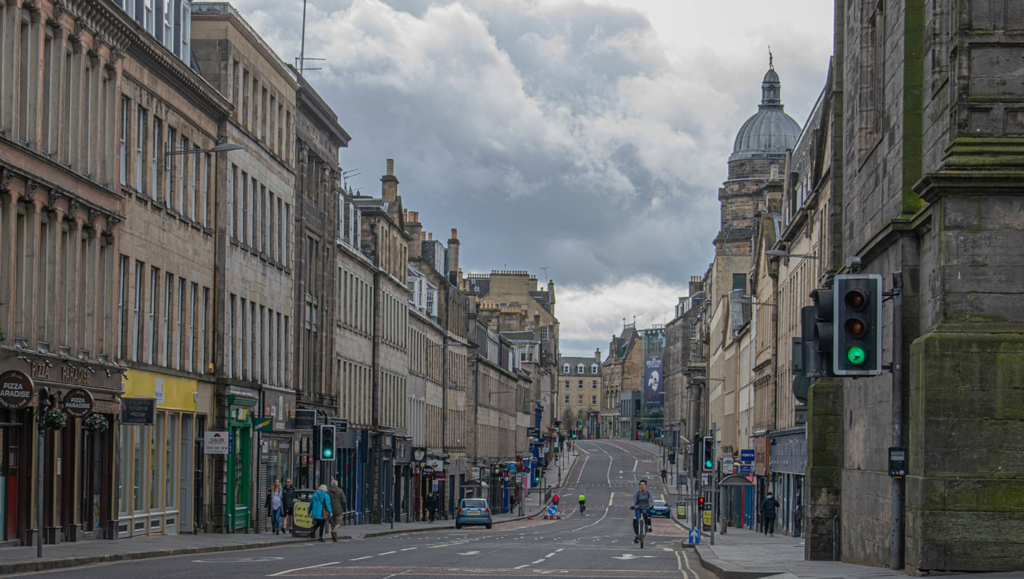
Diplomatic events are likely to resume at some point, because they are the essence of this line of work and they clearly cannot be replaced by sterile, online meetings. Social distancing is not effective in diplomacy. I think we will definitely see at some point, the resumption with full force of all the events we miss now, perhaps only with small alterations. Life will surely resume its course. But the questions of how appropriately we acted now will remain. Was it adequate? Did the measures that were taken have maximum effect and minimum human sacrifice? These days, it seems to be THE topic of discussion: which comes first…countries’ economies that seem to be collapsing, or the lives of people who cannot fight the disease?
Have we learnt anything from the present experience? I certainly hope so… this pandemic offered us, besides the opportunity to possibly reinvent ourselves, new personal ways of expression. And, above all, I hope that we learnt to appreciate more the people closest to us, to value our time more and to safeguard our health. I would like to believe that we will no longer take our freedom, nature, friends and family for granted. Please take time to call people you love, express your feelings, promise yourself that you will spend more time doing the things you really enjoy, that you will visit the countries you long planned to visit, that you will be grateful for each healthy day bestowed to you and that you will show gratitude for all that is good in your life.
Mankind has proved countless times that it has the wonderful ability to be reborn from its own ashes, like the mythological Phoenix. Pandemics, natural disasters and two terrible world wars have caused immeasurable losses, tested people’s resilience and faith, and brought humanity to near collapse. But each time, the lessons that life has given us have been about resilience and perseverance, about the power to overcome obstacles and look optimistically to the future. It is the legacy that each sorely tried generation leaves for the next one. And I strongly believe that no matter how difficult the present situation is and how long this pandemic will last, kindness, optimism and solidarity will eventually prevail.

